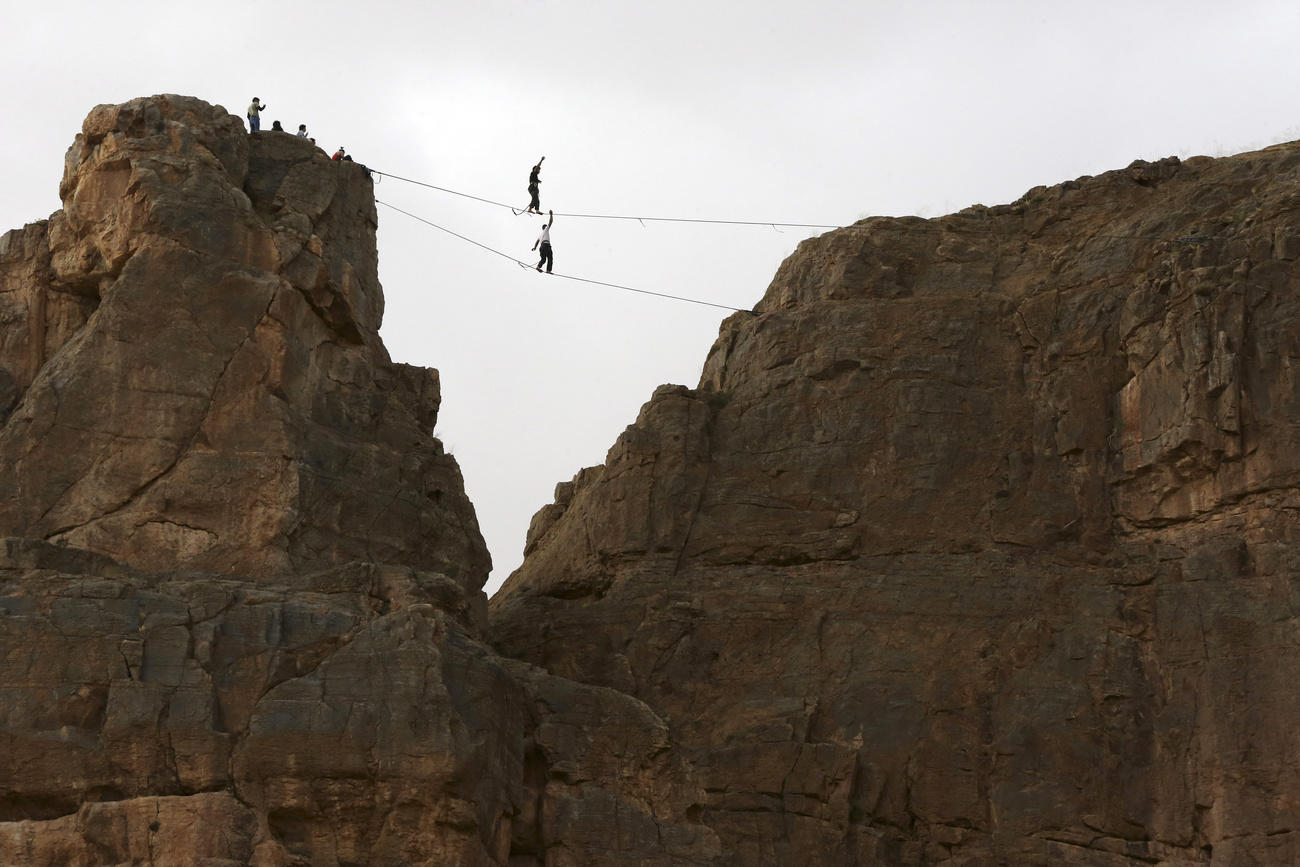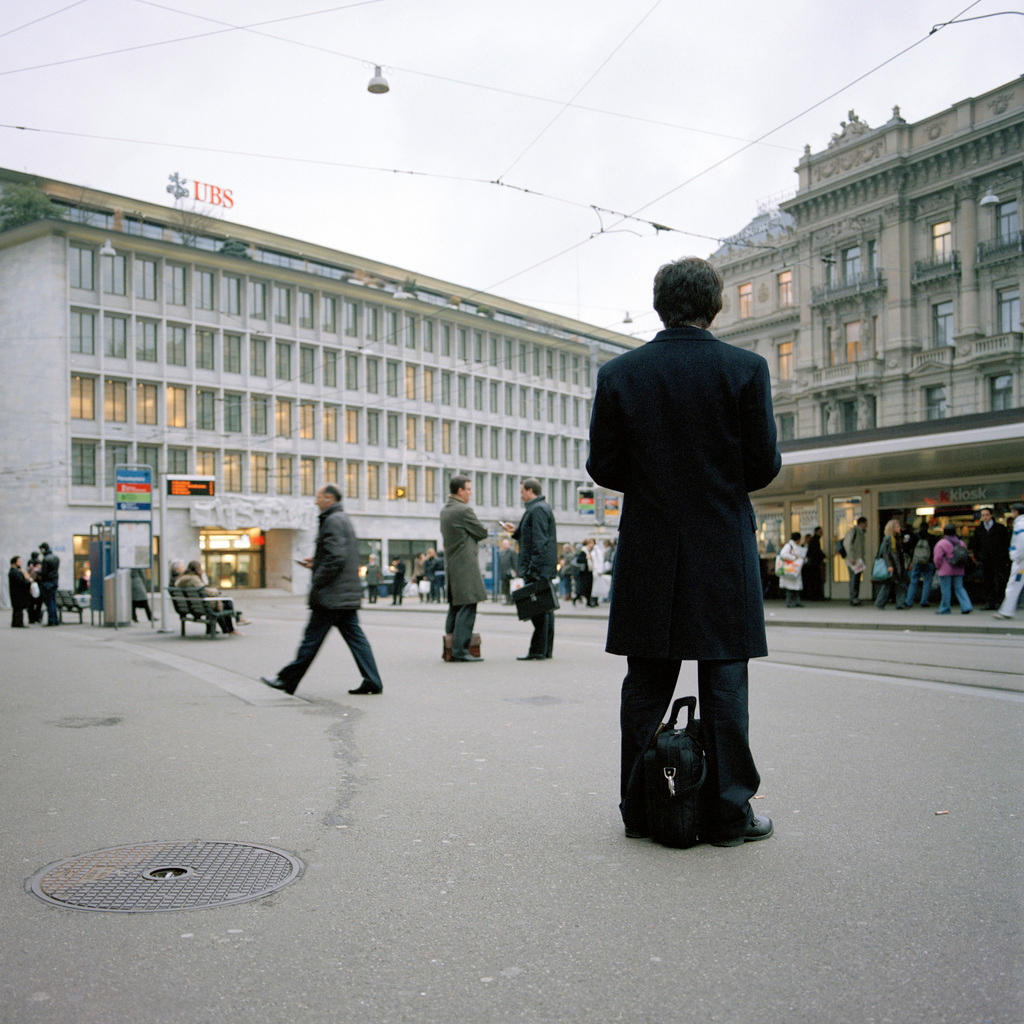When Swiss companies get caught between a rock and a hard place

Our analysis of what the biggest global companies in Switzerland are up to. This week: operating in risky places, corruption investigations and calls for mandatory human rights due diligence.
Swiss companies operate in some of the most complicated and risky environments. When should they call it quits?
This question is likely to be at the forefront of the minds of several Swiss company CEOs as they watch the constant stream of headlines about the largescale internment of members of the Uighur ethnic minority in western China.
Ahead of a planned meeting with the Swiss foreign and economic ministries, exiled Uighur rights advocate Dolkun Isa called for Switzerland to cut economic ties with China. Judging by precedent, this is unlikely to gain much ground with the Swiss government.
But, for Swiss companies like ABB, Nestlé and Novartis with some presence in Xinjiang, reports of human rights issues put them in an awkward position. If they continue with business as usual, what signal does it send about their commitment to human rights? Can they avoid becoming entangled in political and ethnic tensions?
While the market power of China raises the stakes, companies face such questions all too frequently, says the director of the new Geneva Center on Business and Human Rights in a recent interview.
To add to this, legal prosecution for complicity in human rights abuses is also becoming more common as the case against LafargeHolcim in Syria illustrates. My colleague Julia Crawford wrote about how corporate responsibility in war crimesExternal link has become the new legal battlefield.
There are no clear-cut answers as the discussion at the United Nations Business and Human Rights Forum last week revealed. The main message to companies: do everything you can to avoid getting into a compromising position in the first place. This means knowing who you are in business with, what the ethnic makeup is of employees, and who owns the land where you operate.
What do you think companies should do when they find themselves operating in risky places? Would be interested to hear your thoughts: jessica.davis@swissinfo.ch
In other news:
Big companies are calling for regulation to “level the playing field” on responsible business. This push for so-called “mandatory measures” like that in the Responsible Business Initiative was all the talk in Geneva last week. These calls are coming from companies like Nestlé and Barry CallebautExternal link, which have put in place human rights policies and naturally want the rest of the world to play by the same rules.
The latest corporate ranking on human rights shows that laggard companies aren’t just going to flip the switch overnight without a little government nudge. Half of the 200 companies failed to have any form of human rights due diligenceExternal link in place and of the six Swiss companies ranked, Chocolatier Lindt & Sprüngli and tech firm TE Connectivity were among the poorest performers.
Brazil’s Car Wash scandal won’t go away for the big Swiss commodity traders. A couple of weeks ago, Swiss prosecutors searched the Geneva offices of Vitol and Trafigura as part of the investigation into the involvement of company executives in corruption, money laundering and criminal organisation in Brazil. Brazilian prosecutors claim that Vitol and Trafigura paid bribes to employees of state oil company Petrobras to obtain contracts as part of the biggest corruption scandal in Brazil’s history.
This isn’t the only investigation underway. SonntagsZeitung reported that the Ukrainian judiciary named four Swiss companies in a criminal case concerning the illegal import of hard coal from the Donbass region in eastern Ukraine, which is occupied by pro-Russian separatists.
The latest government statistics on multinationals are out. The 28,622 multinationals in Switzerland employ 1.4 million people – about a quarter of Switzerland’s total employment. While foreign-controlled multinationals like Google, Procter & Gamble and Japan Tobacco International are still important for cantonal coffers, the stats revealed that there are twice as many employees in Swiss-controlled multinationals as foreign ones.
Most of the foreign companies have their base in Germany, the US and France, but Chinese companies are making some headway. The number of jobs in Chinese-controlled enterprises in Switzerland, such as Huawei, increased more than sevenfold from 2014-2018.
What’s coming up?
We’ll be ending the year with our top multinationals stories from 2019. Stay tuned and drop me a line with your thoughts on the biggest stories of 2019. jessica.davis@swissinfo.ch

In compliance with the JTI standards
More: SWI swissinfo.ch certified by the Journalism Trust Initiative












You can find an overview of ongoing debates with our journalists here . Please join us!
If you want to start a conversation about a topic raised in this article or want to report factual errors, email us at english@swissinfo.ch.